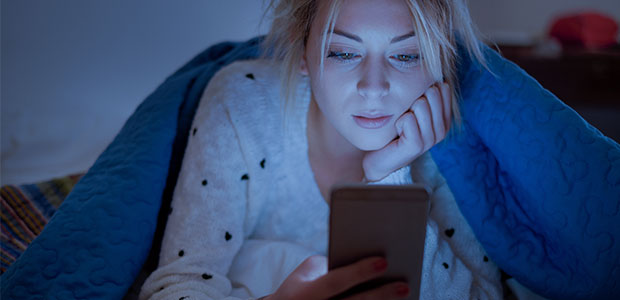
How Blue Light affects Mental Health
Too much screen time can affect your mental health. That’s when the blue light comes from your mobile, computer, desktop, and TV. So do light bulbs that are fluorescent and Lead (light-emitting diode). Although evidence is increasing that blue light can be beneficial during the day, sensitivity at night has been associated with health concerns such as sleeplessness and mood disorders. Here’s what it takes you to remember. Within the continuum, blue light is one of the kinds of light available. It more commonly comes from two sources: the Sun itself and LED displays (such as those on our laptops, iPhones, and computer systems). Blue light has also led to the creation of blindness in some instances.
Researchers believe the circadian pattern or sleep/wake cycle is thrown off by overnight exposure to blue light. This could escalate to depressive symptoms. That’s how the circadian cycle, including neurotransmission and hormone secretion, plays a part in many brain and behavioral processes.
If you spend time on handheld screens or get exposed to other blue light sources after the sun goes down, the odds are greater. Mice exposed to dim light at night for 4 weeks reported higher rates of depressive symptoms than mice exposed to the normal light-dark period in an observational study. Blue light often delays or prevents the release of melatonin, the sleep regulating hormone, from the body. In one experiment, participants took a bit longer to fall asleep using an e-reader at bedtime and reported feeling drowsy the next morning. Another research found that only 2 hours of proximity to blue light at night would affect the production of melatonin. One of the most obvious signs of mood problems such as depression and anxiety is discomfort sleeping. When you don’t have enough sleep, the probability of a mood condition is higher.
Although the science of how and why blue light impacts our wellbeing is still being explored, to keep your body healthy, there are simple steps you can take now. Try to reduce the Screen Time Period. To protect your skin from the harmful effects of nighttime lights, maybe the most effective thing you can do is to minimize screen time after the sunsets. Note the daylight is the most critical external stimulus for your circadian rhythm. Metabolic processes can follow a schedule of about 24 hours, so sensitivity to lighting can be harmful at longer periods. Because digital displays emit a large amount of blue light, it is a great first step to minimize your exposure to these outlets. One more thing that you can do is wear Blue Light glasses, You can read more about blue light and its blocking glasses sites such as https://www.foundationfairy.com/blue-light-glasses-eye-strain/.
Since they provide so many health benefits, they are a popular subject. By blocking a part of the blue light wavelength from touching your eyes, they perform. Note that in controlling the circadian rhythm, blue light is especially important because it produces the best reaction from the ipRGC photoreceptors.








